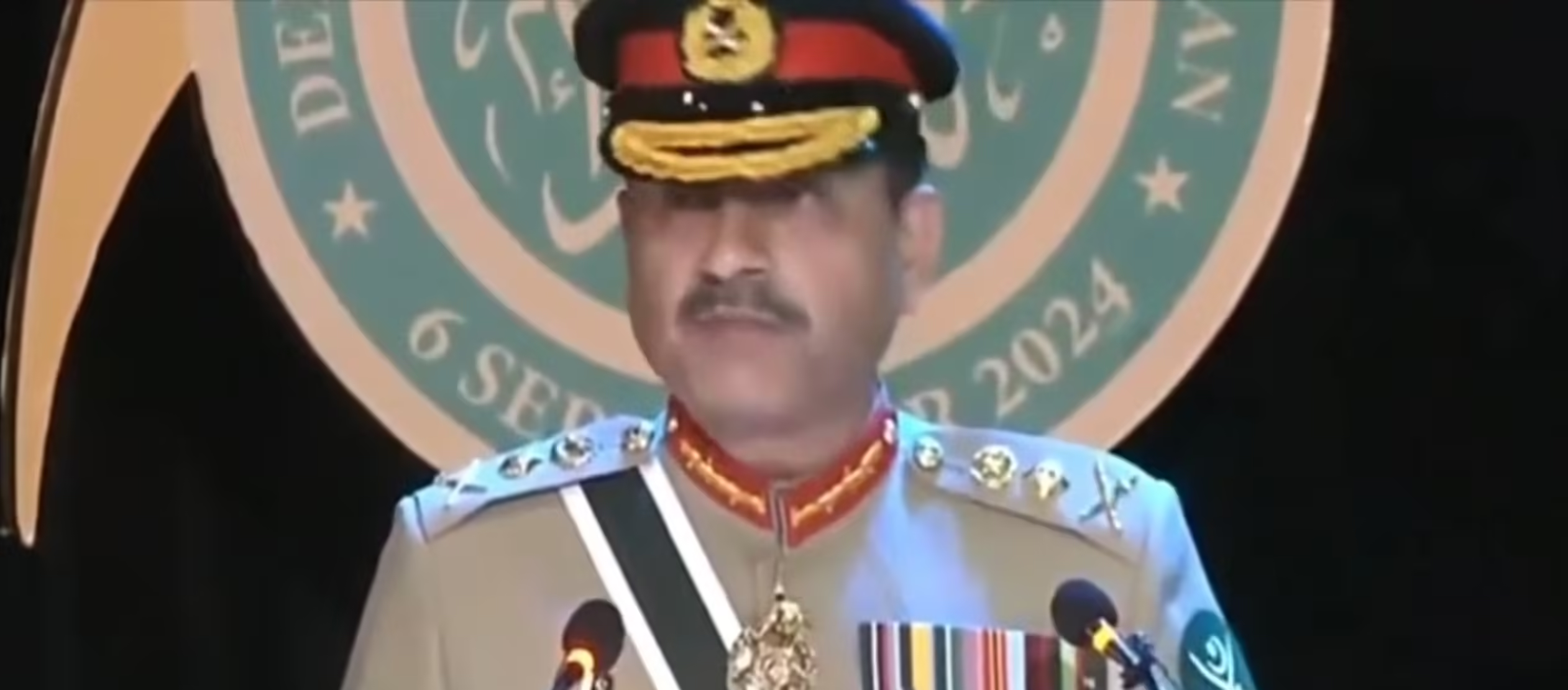Pakistan army chief, General Syed Asim Munir, said the military was responsible for the 1999 conflict with India in the disputed territory of Kashmir. During Pakistan’s Defence day at GHQ Rawalpindi, Munir openly supported the soldier’s cause, acknowledged the soldiers who died during the Kargil war, a stand Pakistan had refused to take for over 2 decades.
Pakistan’s Shift in Narrative on Kargil
For 25 years, Pakistan kept claiming that the Kargil conflict was being led by ‘freedom fighters’ in Kashmir and they did not admit to the role of their armed forces in the conflict. Nonetheless, Pakistan army chief Munir’s statement has been considered as the brief confession of the existing army chief about Pakistan’s military part in the operation.
“The Pakistani nation is strong and values its freedom,” Pakistan army chief Munir stated, referencing the sacrifices made by soldiers in conflicts with India, including the Kargil war.
They are bitter words in sharp contradiction to the Pakistani storyline that lasted for decades claiming the Kargil intrusion to be an isolated act of uprising.
Revisiting Kargil: What Led to the Pakistan Army Chief Admission?
The chief of Pakistan army general Pervez Musharraf who planned the Kargil operation said at one point that Pakistan army was heavily involved in Kargil incursion. But Musharraf had framed the operation as successful in Operation Man on the Ground – that is why he declared that it did not need a larger endorsement from the civilian government.
“It started with mujahideen and then military northern command operationalised it… this is a localised military operation not needing an operational directive from the high command,” Musharraf had said in a previous interview.
Internal revelations followed former Pakistan Army Chief’s admission, it is reported that the top military officers including the DGMO had informed the then Prime Minister Nawaz Sharif in May 1999 but only when the important progress was made.
A Divided Legacy: Success for Some, Blunder for Others
The conflict within the Kargil is still debatable issue within the circles of Pakistan military and political. To some, it is a successful tactical operation, a coup, to others it is a disastrous strategic mistake that worsened relations between Pakistan and India and put Pakistan in a unfavorable diplomatic position.
Mushahid Hussain Syed, a former official of the government also revealed that the Sharif government was mostly in the dark about the details of the operation and was briefed too late to change anything.
‘We got to know officially about Kargil on May 17, 1999 but the Indian media had reported, possibly months earlier that something was brewing along the Line of Control,“ Syed added, There were communication failure’s between the Indian and Pakistan and the Pakistani Militaries and possibly internal militaries overreach.
Families of Martyrs Speak Out: Soldiers Left Behind
The Kargil this had a profound impact on the Pakistani military more so because many of the troops were killed fighting at high altitude. But in contrary to this, there are certain reports which claim that the Pakistani government and its military never sufficiently responded to these losses and many families never got their closure.
Captain Farhat Haseeb’s brother, Itrat Abbas also affirmed to Peter Greste saying that the bodies of the soldiers were not taken from the battle scenes.
“We pleaded with the military to return the bodies. They didn’t bother to put in any effort to do so,”,” this from the distraught Abbas who was visibly affected by the military dehumanisation of entire scenario and which lead to emotional toll on families.
Similar sentiments were expressed by Rehana Mehboob, the mother of another martyred soldier Captain Ammar Hussain, she said the she receives SOS calls frequently from her son’s unit but she never felt that any chain of army command could take official responsibility for the operation.
The Long Shadow of Kargil: A Military Secret No More
In addition to the Pakistan army chief Munir’s statement, the reports by Musharraf and other government officials have shed new light to one of the most questionable military actions in the Pakistani history. Although Pakistan at first tried to play down the Kargil conflict, new confessions imply a much more direct role was being played by the nation.
It may change the perception about the Kargil war in Pakistan and provide the military with the time to review the event and the families who lost their dear ones in the war with what they have wanted for a long time. To many, Munir got the kind of admission they have been looking for for decades: although the soldiers performed their duty honorably, the hierarchy knew about the killings and kept wrapping in secrecy for decades.
What’s Next? The Legacy of Pakistan’s Kargil Involvement
With this admission, the history of Kargil conflict is a work in progress. In the hand of Pakistani military, often criticized for hiding everything from its civilian government to its own nation, has now changed its opaque approach towards the involvement in important military operations. Whether this admission will lead to further change in military transparency or not we have to wait and see.
A war that was once dubbed as Sipl-e-Azadi by the freedom fighters, now attests to Pakistan’s bloody combatants and poses some uncomfortable questions regarding the leadership responsibility and plausibility of Military in Pakistan today.


[…] Pakistan initially denied any involvement, Pakistani minister Fawad Chaudhry later admitted in Parliament, saying, “Humne Hindustan ko ghus ke […]